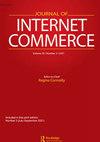文化对网上银行接受度影响的探索——基于扩展UTAUT模型的巴基斯坦和土耳其比较研究
IF 4.3
Q2 BUSINESS
引用次数: 30
摘要
摘要本研究采用接受和使用技术的统一理论(UTAUT2),结合感知可信度,预测客户的行为意图(BI)及其对网上银行的使用,调查并比较了巴基斯坦和土耳其文化中对网上银行(OB)的接受程度。本研究进一步探讨了五个文化维度对顾客使用行为的适度影响。使用在线调查,通过问卷调查从巴基斯坦的322名银行客户和土耳其的405名银行客户中收集数据。通过智能PLS的结构方程建模用于分析结构之间的关系。我们的分析表明,绩效预期(PE)、享乐动机、习惯(HT)和感知可信度(PC)是巴基斯坦接受OB的决定因素,而PE、社会影响力、价格价值、HT和PC是影响土耳其银行客户意向的因素。文化调节因子的结果表明,集体主义和长期/短期取向影响巴基斯坦客户的UB,而不确定性回避、权力距离和男性气质/女性气质调节土耳其客户的UB。我们的研究结果为两国发展网上银行提供了新的见解。本文章由计算机程序翻译,如有差异,请以英文原文为准。
Exploring the Effects of Culture on Acceptance of Online Banking: A Comparative Study of Pakistan and Turkey by Using the Extended UTAUT Model
Abstract This study investigates and compares online banking (OB) acceptance in the cultures of Pakistan and Turkey by employing the unified theory of acceptance and use of technology (UTAUT2) integrated with perceived credibility to predict customers’ behavioral intentions (BI) and their usage of online banking. This study further investigates the moderation influence of five cultural dimensions on customers’ usage behavior (UB). Using an online survey, data were collected through a questionnaire from 322 bank customers in Pakistan and 405 in Turkey. Structural equation modeling through Smart-PLS was used to analyze relationships among the constructs. Our analysis shows that performance expectancy (PE), hedonic motivation, habit (HT), and perceived credibility (PC) are determinants of OB acceptance in Pakistan, whereas PE, social influence, price value, HT, and PC are the factors affecting Turkish bank customer intentions. Results of the cultural moderators show that collectivism and long-term/short-term orientation affect customers’ UB in Pakistan while uncertainty avoidance, power distance, and masculinity/femininity moderate the UB of Turkish customers. Our findings provide new insights for developing online banking in both countries.
求助全文
通过发布文献求助,成功后即可免费获取论文全文。
去求助
来源期刊

Journal of Internet Commerce
BUSINESS-
CiteScore
10.50
自引率
7.00%
发文量
18
期刊介绍:
The business world has undergone many changes because of information technology, and the impact of the Internet may cause one of the biggest yet. While many people use the Internet for educational and entertainment purposes, organizations and companies are looking for ways to tie their internal networks to this global network to conduct electronic commerce. While companies have been conducting business electronically with suppliers and customers for many years, conducting online commerce via the Internet offers even greater opportunities for multinational, national, and even small businesses to cut costs, improve efficiency, and reach a global market.
 求助内容:
求助内容: 应助结果提醒方式:
应助结果提醒方式:


